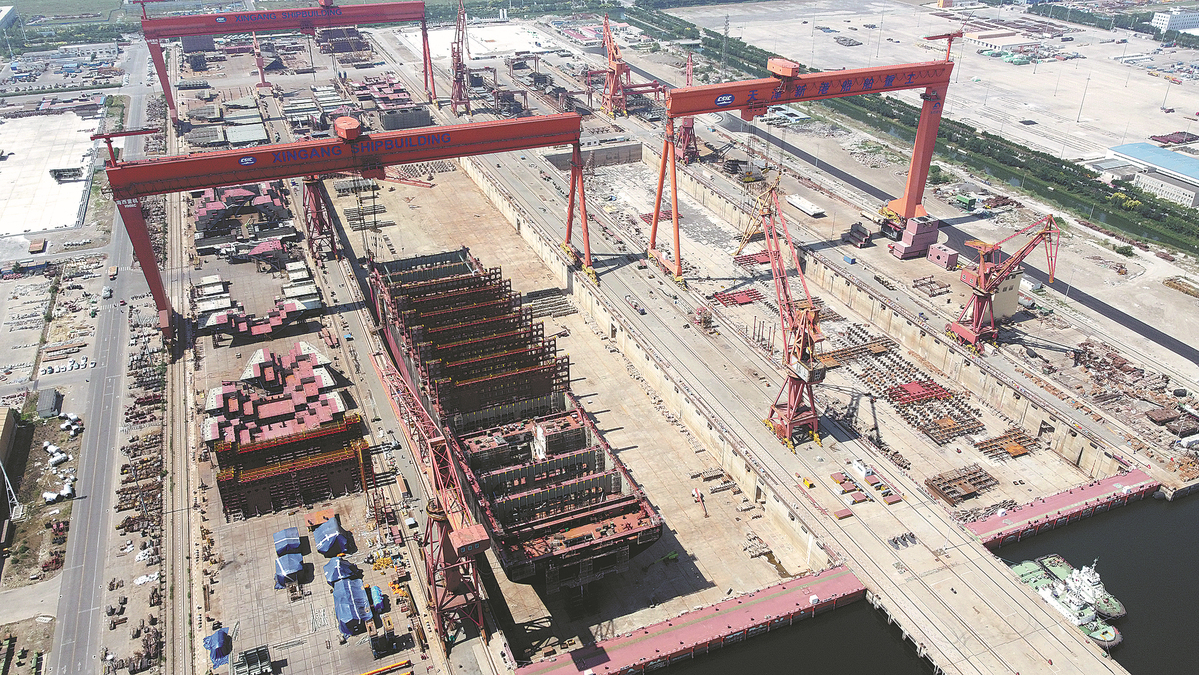Chinese shipping beefs up global supply chains


Benefiting everyone
At Tianjin's Dongjiang Free Trade Port Zone, a container carrying wine shipped from Italy has just arrived. The wine will be sold across China.
"In 2017, we only introduced a few pallets of the wine of this brand and decided to 'wait-and-see' how the market would react," said Michelle Hu, operations director of Marquis (Tianjin) Trading Co Ltd.
"Now we import several containers of Italian wine every year," said Hu, adding that years of promotion have helped improve consumers' recognition of this Italian brand.
Speaking via video link, Chinese Commerce Minister Wang Wentao said that in recent years, China has made solid strides in high-quality development of foreign trade, ranking first in global trade in goods for six consecutive years. The shipping industry has played an important role.
Data showed that China's port cargo and container throughput have ranked first in the world for many consecutive years. In 2022, the cargo throughput of China's ports reached 15.69 billion metric tons, and the container throughput was 296 million twenty-foot equivalent units.
In addition to logistics and trade, China has carried out in-depth global cooperation across the whole shipping industry chain, including global ports cooperation, shipbuilding and ship leasing.
As one of the largest shipping enterprises in the world, China COSCO Shipping owns over 1,300 ships with a combined shipping capacity of 111 million dead-weight tons, ranking first in the world. The company's global shipping routes cover more than 1,500 ports in 160 countries and regions, with an annual cargo volume of 1.3 billion tons.
"We have made the port of Piraeus a leading container port in Europe. With joint efforts of the COSCO Shipping management team, the company has made a significant contribution to the local economy, culture, society and finance of Greece," said Yu Zenggang, executive chairman of COSCO Shipping (Piraeus) Ports Ltd.
"China has introduced a number of policies and measures to smooth import and export logistics, facilitate cross-border trade and innovate in the development of foreign trade, providing stable impetus to the world economy," said Liang Feng, an associate professor at Nankai University.
Xinhua




































